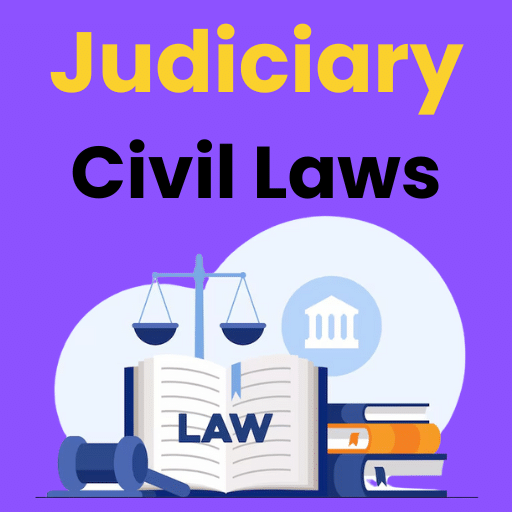Best Study Material for Judiciary Exams Exam
Judiciary Exams Exam > Judiciary Exams Notes > Criminal Law for Judiciary Exams > Self Defence in IPC
Self Defence in IPC | Criminal Law for Judiciary Exams PDF Download
Introduction
- Self-defence is an inherent right designed to protect individuals from immediate harm or danger. In India, the legal framework governing self-defence is outlined in the Indian Penal Code (IPC).
- Understanding the provisions of the IPC related to self-defence is essential for individuals to assert their rights while ensuring the appropriate and lawful use of force.
Legal Aspects of Self-Defence
Laws pertaining to self-defence may exhibit variations across jurisdictions, but they generally adhere to common principles.
Key aspects to consider include:
- Imminent Threat: Self-defence is typically applicable when an individual faces an imminent threat, signifying that the danger is immediate and unavoidable, leaving no reasonable opportunity to escape or seek help.
- Proportionality: The use of force in self-defence must be proportional to the threat faced. This implies that the response should be reasonable and necessary to neutralize or repel the imminent danger. The application of excessive force beyond what is necessary may undermine the claim of self-defence.
- Reasonable Belief: Self-defence relies on a reasonable belief that one's safety is in immediate jeopardy. This belief is subjective, taking into account what a reasonable person would perceive in the same situation rather than relying on hindsight.
- Retreat and Stand Your Ground: Certain jurisdictions necessitate individuals to retreat or attempt to avoid the conflict if it is safe before resorting to self-defence. In contrast, others uphold the "stand your ground" principle, allowing individuals to defend themselves without a duty to retreat, especially in their homes or public spaces.
Question for Self Defence in IPC
Try yourself:
What is the key principle to consider when using self-defence?View Solution
Legal Provisions in the IPC
IPC Sections 96 to 106 cover private defence, including self-defence. Understanding these laws helps individuals act lawfully in self-protection.
Understanding Private Defence and Self-Defence
- Self-Defence: Involves the legal right of an individual to protect themselves from immediate harm.
- When facing a perceived threat, individuals can use reasonable force for protection.
- For instance, if someone tries to physically harm you and you push them away to prevent the attack, that could be considered self-defence.
 |
Download the notes
Self Defence in IPC
|
Download as PDF |
Download as PDF
Private Defence Overview
- Definition: Encompasses self-defence, defense of others, and property protection.
- It extends beyond personal protection to include safeguarding others and belongings.
- For example, if you intervene to protect someone being attacked on the street, that falls under private defence.
Key Differences between Private Defence and Self-Defence

Question for Self Defence in IPC
Try yourself:
What is the key difference between private defence and self-defence?View Solution
The document Self Defence in IPC | Criminal Law for Judiciary Exams is a part of the Judiciary Exams Course Criminal Law for Judiciary Exams.
All you need of Judiciary Exams at this link: Judiciary Exams
|
99 docs|98 tests
|
FAQs on Self Defence in IPC - Criminal Law for Judiciary Exams
| 1. What is self-defence in the context of the Indian Penal Code? |  |
| 2. When can self-defence be considered justified under Indian law? |  |
Ans. Self-defence is justified under Indian law when the force used is proportionate to the threat faced and when there is no opportunity to retreat from the situation.
| 3. Can self-defence be used in response to verbal threats or insults? |  |
Ans. Self-defence is generally not justified in response to verbal threats or insults alone. It is typically only justified in response to physical harm or the threat of physical harm.
| 4. Are there any specific guidelines for determining what constitutes reasonable force in self-defence cases? |  |
Ans. While there are no strict guidelines, the force used in self-defence should be necessary to protect oneself or others from harm. It should also be proportionate to the threat faced.
| 5. What should a person do if they believe they have acted in self-defence in a legal situation? |  |
Ans. If a person believes they have acted in self-defence in a legal situation, they should seek legal advice and be prepared to provide evidence that their actions were necessary to protect themselves or others from harm.
Related Searches



























